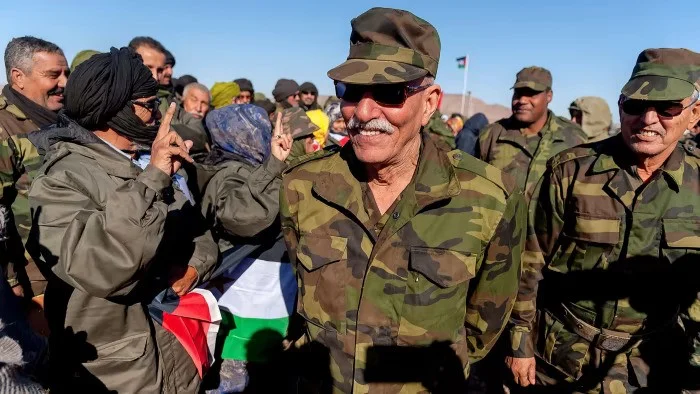On January 20, 2023, the Polisario Front, the movement advocating for Western Sahara’s independence, re-elected Brahim Ghali as its leader in a significant vote held during its congress in a Sahrawi refugee camp in Algeria. Ghali, aged 73, secured 69 percent of the delegate votes, defeating his challenger, Bechir Moustafa, who garnered 31 percent, according to the Sahrawi Press Service (SPS). This election, the first since the breakdown of a UN-supervised ceasefire with Morocco in November 2020, reaffirms Ghali’s leadership for another three-year term as both the Polisario’s secretary-general and president of the self-proclaimed Sahrawi Arab Democratic Republic (SADR).
Continued Support from Algeria
Despite recent health challenges, including a severe case of COVID-19 in April 2021 that required treatment in Spain, Ghali’s re-election was widely anticipated due to strong backing from Algeria, the Polisario’s primary international supporter. His hospitalization in Spain had sparked a diplomatic rift between Madrid and Rabat, ultimately leading to Spanish concessions on the Western Sahara issue. Ghali’s enduring leadership reflects his deep ties with Algeria and his longstanding role in the Sahrawi struggle, which he has championed since the Polisario’s founding in 1973.
The Western Sahara Conflict: A Historical Struggle
The Western Sahara dispute traces its roots to 1975, when Spain, the former colonial power, withdrew from the territory, triggering a 15-year war between the Polisario Front and Morocco. The conflict culminated in a 1991 UN-brokered ceasefire, which left Morocco controlling approximately 80 percent of the resource-rich territory. The agreement promised a UN-supervised referendum to determine whether Western Sahara would gain independence or integrate with Morocco, but this vote has yet to materialize, leaving the Sahrawi people in limbo.
The fragile truce collapsed in November 2020 when Morocco deployed troops to the southern region of Western Sahara to clear Sahrawi protesters blocking a highway to Mauritania. The Polisario condemned the road, built after the 1991 agreement, as a violation of the ceasefire terms. Since then, a series of deadly clashes has heightened fears of a return to full-scale conflict, with both sides accusing each other of escalating tensions.
Challenges to Polisario’s Cause
Ghali’s leadership comes at a challenging time for the Polisario. In December 2020, the administration of former U.S. President Donald Trump recognized Moroccan sovereignty over Western Sahara in exchange for Morocco’s normalization of ties with Israel. This move emboldened Rabat to push other nations to acknowledge its control over the territory, leaving the Polisario increasingly isolated on the global stage. The SADR, recognized by the African Union and a handful of countries, struggles to gain broader international legitimacy, complicating the movement’s efforts to secure a referendum.
A Pivotal Moment for Western Sahara
As Ghali begins his new term, the Polisario Front faces mounting pressure to navigate diplomatic isolation and ongoing skirmishes with Morocco. The congress in Algeria served as a platform to reaffirm the movement’s commitment to independence, but the path forward remains fraught with challenges. The failure of the promised referendum continues to fuel frustration among Sahrawis, many of whom live in refugee camps in Algeria. Ghali’s leadership will be tested as he seeks to rally support and maintain momentum in the face of Morocco’s growing influence.






